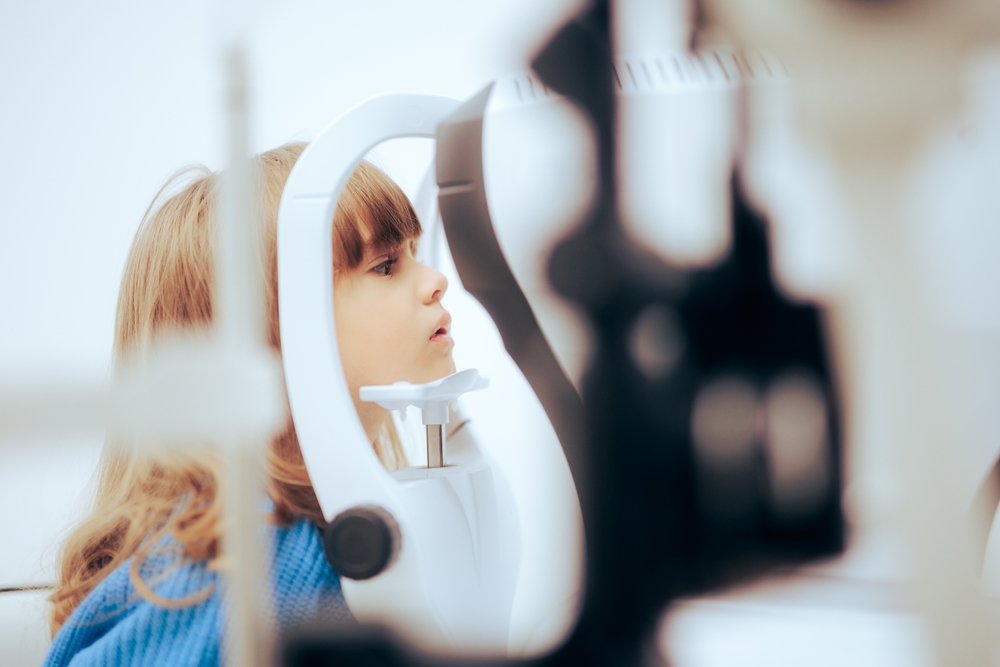
Vision screenings are a crucial part of a child’s overall health care, often conducted during pediatric check-ups. These screenings aim to detect potential vision problems early, ensuring your child can thrive academically, socially, and developmentally. At Advanced Pediatrics, PC, we prioritize your child’s well-being, and understanding what vision screenings can uncover is a vital step in maintaining their health.
The Importance of Vision Screenings
Early detection of vision issues is essential because children may not realize they have a problem. They may assume their vision is normal, even if it’s not, which can affect their ability to learn, play, and engage in daily activities. Vision screenings identify potential concerns that may require further evaluation by an eye care professional.
Refractive Errors
Refractive errors are among the most frequently diagnosed visual issues in children. These conditions occur when the shape of the eye prevents light from focusing correctly on the retina, the light-sensitive layer at the back of the eye responsible for sending visual information to the brain.
Nearsightedness (Myopia): This condition causes distant objects to appear blurry while close objects remain clear. It typically occurs when the eyeball is too long or the cornea is too curved, causing light to focus in front of the retina.
Farsightedness (Hyperopia): In contrast, farsightedness makes nearby objects blurry while distant objects are seen more clearly. This occurs when the eyeball is too short or the cornea is too flat, causing light to focus behind the retina.
Astigmatism: This condition results in blurred or distorted vision at all distances due to an irregularly shaped cornea or lens. Instead of light focusing evenly on the retina, it scatters or focuses unevenly.
Amblyopia
Amblyopia, commonly known as lazy eye, develops when one eye doesn’t achieve normal vision, even with glasses or contact lenses. This condition typically arises due to:
Poor Alignment (Strabismus): If the eyes do not point in the same direction, the brain may suppress the weaker eye to avoid double vision, leading to underdevelopment of vision in that eye.
Significant Difference in Refractive Errors (Anisometropia): When one eye has a much stronger refractive error than the other, the brain may rely more on the stronger eye, neglecting the development of the weaker one.
Strabismus
Strabismus, or crossed eyes, occurs when the eyes are not aligned properly and fail to work together. This misalignment can present in various ways, such as one eye turning inward, outward, upward, or downward. Because the eyes are not aligned, the brain receives two different images. This can result in:
Double Vision: Seeing two images of a single object.
Poor Depth Perception: Difficulty judging distances and spatial relationships.
Vision Suppression: The brain may ignore input from the misaligned eye to avoid confusion, potentially leading to amblyopia.
What Happens After a Vision Screening?
If your child’s vision screening indicates a potential issue, further testing with a pediatric optometrist or ophthalmologist is recommended. Comprehensive eye exams provide a deeper evaluation and help determine the appropriate treatment, which could include glasses, vision therapy, or other interventions.
Supporting Your Child’s Vision Health
Advanced Pediatrics, PC, encourages regular vision screenings as part of your child’s routine health care. Addressing vision problems early can have a profound impact on your child’s development and quality of life.
Contact Advanced Pediatrics, PC, to learn more about vision screenings or schedule your child’s next well-check visit. Visit our offices in Elmhurst or Jackson Heights, New York. Call (718) 271-2600 or (718) 271-2611 to book an appointment today.








